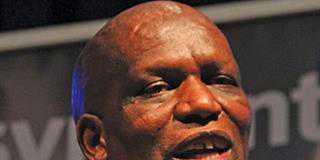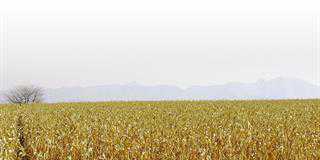Tell us about yourself and your involvement with Kwanalu.
I worked in Standard Bank’s commercial banking section in Jo’burg before joining my father Warwick and my brother Kevin on the family farm in the Dargle Valley nine years ago. The farm has a 90 000-hen commercial egg-production operation.
We’re members of the Highveld Egg Cooperative and we market our eggs under the co-op’s Toplay Country Eggs brand. When I joined the family business, I also joined Kwanalu and I’ve been Kwanalu’s president for nearly four years now. Prior to that, I was involved in other aspects of the union, such as tackling property rates and land reform at a senior level.
As Kwanalu president, what change have you witnessed in the public’s image of white commercial farmers in recent years?
The image of white commercial farmers is quite poor. Many see us as “bellicose layabouts” who live grand lives. We are partly to blame, as we haven’t managed our image particularly well. We farmers have to conduct our businesses professionally, or risk being unsuccessful. We need to make sure the public knows this.
Who holds this poor image of white commercial farmers?
I think it’s people who see us as obstructive in sector transformation, as it furthers their agendas to portray us like that. Only a minority of farmers are guilty of obstructive behaviour, such as not adhering to their farmworkers’ or farmdwellers’ rights. Certain groups, especially some NGOs, quickly make this out to be the norm to get publicity and to gain traction to further their agendas for the land issue.Farmworkers or farmdwellers who feel their rights are infringed, sometimes take the easy road of making headline-grabbing generalisations.
Can you give us an example of one of these generalisations?
The generalisations Kwanalu hears about, and that frequently pops up in petitions, are that farmers are beating people, shooting at them and so on. So farmers are also seen as violent and bloodthirsty, which is not the truth. I’ve never met a farmer guilty of such violent behaviour. And, don’t forget, Kwanalu was a key mover behind the formation of the monitoring committee for human rights violations to investigate just such allegations.
How far up in the South African political hierarchy do these misconceptions extend?
If you put yourself in the shoes of agriculture minister Tina Joemat-Pettersson, and representatives of a community come to you and say a farmer has been impounding or shooting their cattle, your immediate reaction would be that something’s wrong.
That is an understandable, natural reaction, but problems arise when people forget there are always two sides to every story. Some farmdwellers or others, who feel they have a right to a particular piece of land, deliberately disobey this country’s constitution by making it impossible to farm that land. Frustrated farmers eventually give up, but then the conspiracy theories start. I have my doubts about the validity of these theories.
I’d like to think that politicians seem anti-farmer because they’re misinformed and aren’t deliberately spreading lies. It’s our job as organised agriculture to see these politicians are correctly informed.
Many politicians don’t seem to know formal structures exist to manage issues that arise in the industry. Worse, despite the existence of these structures, communities still prefer to use generalisations when trying to involve politicians.
Yet the fact remains – mechanisms are already in place to investigate issues in a cogent manner to find the truth. These structures are broadly represented across all relevant spheres, and there’s no need for people to involve the media until they’ve made use of these structures to find out what’s really going on.
So disputes and allegations can be resolved in a rational way?
Yes, but I don’t think it always suits the agendas of some of the parties to achieve a just resolution, because they might not get the outcome they desire. It’s almost as if they want instability. It’s a wild allegation to make, but what else can you say when you have communities tearing down fences and cattle invading farms and so on, and nobody seems to be able to do anything about it? The fact is, farmers’ rights are also being violated.
Is there a positive side to all of this?
I’ve never received anything other than goodwill from other parties in land discussions. I’ve never had antagonism directed at me personally. Having said that, though, when you get into a forum, like a land or farmworkers’ summit, the mob mentality often prevails and you end up on the receiving end.
Earlier this year, I was invited, as part of a panel, to address a forum discussion of about 500 members of the ANC Durban branch on farmers’ role in national reconciliation. Obviously, I was filled with trepidation as I was not used to talking to this constituency and I was unsure of how they would receive my message. This was also at the time of Eugene Terre’Blanche’s murder and Julius Malema’s utterances about “kill the farmer”.
But the panel was well-balanced and I was able to talk about farmers and their approach to life, business and the environment. What I did was repeat the views of Kwanalu and its members – that we all want sustainable businesses in an environment of certainty, because only then can farmers make investment decisions or long-term strategic decisions for their businesses.
I told the forum that, like almost everyone else, we see ourselves as committed South African citizens who basically want peace and harmony.
We don’t see ourselves as having one foot in this country and one in another – we’re here for the long run.
I also highlighted that many farmers are investing a lot of money, time and effort to better their farming environment, which includes the upliftment of their employees. In a snap survey of around 95 Kwanalu members a few days before the forum, we found they’re spending some R6,5 million a year to better farmworkers’ and farmdwellers’ environment. They’re doing this and footing the bill out of their own free will, as they feel it’s the right thing to do. The forum responded with understanding and acceptance of my message.
What did you take away from this forum?
That farmers don’t need to always feel beleaguered and isolated. We have rights and obligations, and like any other society are confronted with challenges where we must just keep at it using the correct channels. Then right will prevail. Yes, there are farmers who feel they’re not getting support from some of these channels. For one, the land question still needs to be addressed and government has been remarkably ineffective in this regard.
Unfortunately, the response to this has been to make what some call “reactionary statements”. Other groups, particularly those in government, then make counter-statements stemming from frustration. And so allegations and counter-allegations fly back and forth.However, we do not need to feel too beaten up. Sure, some of those statements are irritating, but we have a clearly defined property clause in our constitution and also a set of statutes in this regard.
My friend Louw Steytler from the Free State always reminds me the constitution is what underpins the conduct of every citizen, whether they’re the president or a farmer. While the constitution stays as is, I’m not too worried.But we do need to speak up about where we’re being challenged, investigate why and then do something positive about it. That might mean that we need to take appropriate legal steps against certain parties, but that’s part of living in a constitutional democracy. We have rights and we must pursue them.













